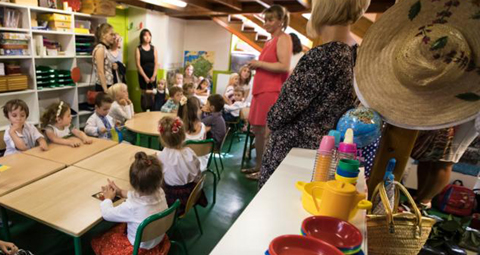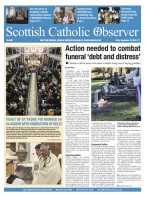September 30 | ![]() 0 COMMENTS
0 COMMENTS ![]() print
print

A call for diversity in education, and humanist schools if desired
Recent coverage of the Humanist Society’s judicial review of the Scottish Government’s decision to reject a change to the rules governing religious observance in schools, reminded me of the epigram frequently and perhaps erroneously attributed to GK Chesterton, who is claimed to have said: “When a man stops believing in God he doesn’t then believe in nothing, he believes anything.”
Currently only parents are allowed to remove their children from religious observance in schools, rather than the pupils themselves being allowed to do so. The Humanist Society’s move followed a review by the United Nations Children’s Rights Committee which recommended the parental right to opt out should be extended to young people.
In England and Wales, young people over the age of 16 already have the right to opt out. The humanists claimed the refusal to update guidance in the wake of the UN review meant ministers had potentially acted unlawfully or at least against the spirit of international and domestic precedent.
They have a point. At least in the case of Catholic schools, parents who decide to enrol their children in one cannot claim to be ignorant of the religious ethos and practice which underpins their existence, and as all evidence compellingly shows, their success.
In the case of non-denominational schools however, the picture is less clear. Although the schools were once expected to deliver religious observance of a ‘generally Christian character’ that requirement has long since been dropped in favour of an altogether more amorphous requirement that assemblies and other such gatherings have a spiritual dimension.
Some secularist or humanist parents clearly do not feel that this religious or spiritual observance accords with their own belief system and would rather their children didn’t have to attend. The response from the Scottish Government seemed solidly against opt outs, creating something of an impasse. In fairness to the Government, opting out from existing arrangements or further diluting their content to achieve a lowest common denominator level of acceptability is far from ideal.
Isn’t it time that the needs of humanist parents in a plural society were simply met through discrete educational provision? At present, schools in the state sector do not reflect the plurality of beliefs in society. Unlike England, where the multiplicity of beliefs in society is better replicated in the education system—with Anglican, Baptist, Jewish, Catholic and Muslim schools, among others—in Scotland they are not. Far from celebrating diversity in our school system, we tend to eradicate it, with the exception of Catholic schools, one Jewish and two Episcopalian schools.
The Catholic church supports wider forms of denominational provision, where there is public demand and where the management and regulation of such schools is in accord with national guidance and practice.
Although only a very small number of Scots adhere to a secular humanist belief system, that should not disbar them from seeking to have their children educated in accordance with their beliefs. If demand exists and secular humanist schools were to be managed and regulated in accordance with national guidance and practice, as Catholic schools are, there is no reason why they could not be established.
A precedent already exists, as Scotland’s Registrar General already categorises humanist weddings under the designation of ‘religion and belief’ ceremonies. The state has accepted that couples who wish a civil marriage can use a registrar, but others who have humanist beliefs can be married by a celebrant who shares their beliefs. We are most likely to engender tolerance and respect for diversity, by promoting variety rather than imposing conformity in education or elsewhere.
In response to the case, a clearly hapless Scottish Government spokesperson said religious and moral education enables children to ‘explore, debate and, more importantly, understand’ the world’s major religions ‘as well as approaches to living independent of belief.’
This statement frankly, beggared belief. Firstly, the degree of religious illiteracy in Scottish society would tend to suggest that the former aim is failing. Dramatically. The suggestion that anyone, in this or any other society, lives ‘independent of belief’ is simply comical.
Perhaps the Scottish Government are hoist by their own petard on this question. To allow 16 and 17 year olds to opt out of religious observance would set a precedent that might have to be followed in their Named Person policy, which they steadfastly insist will apply to everyone up to the age of 18.
On the other hand, defending religious observance in schools, which has long since been shorn of Christian content, isn’t really something they’re comfortable doing.
Having largely eviscerated Religious Observance of religion, it is hard to see what any devout humanist might object to, nonetheless, plurality in education, including the creation of humanist schools would seem to offer an answer to their concerns.
It would also have the advantage of not imposing the strictures of one belief system on an entire population, offering instead equality and diversity in educational provision.
Ultimately, if some taxpayers are determined to follow Chesterton’s prophecy and believe in anything, then who are we to stop them?
Peter Kearney is the director of the Scottish Catholic Media Office











